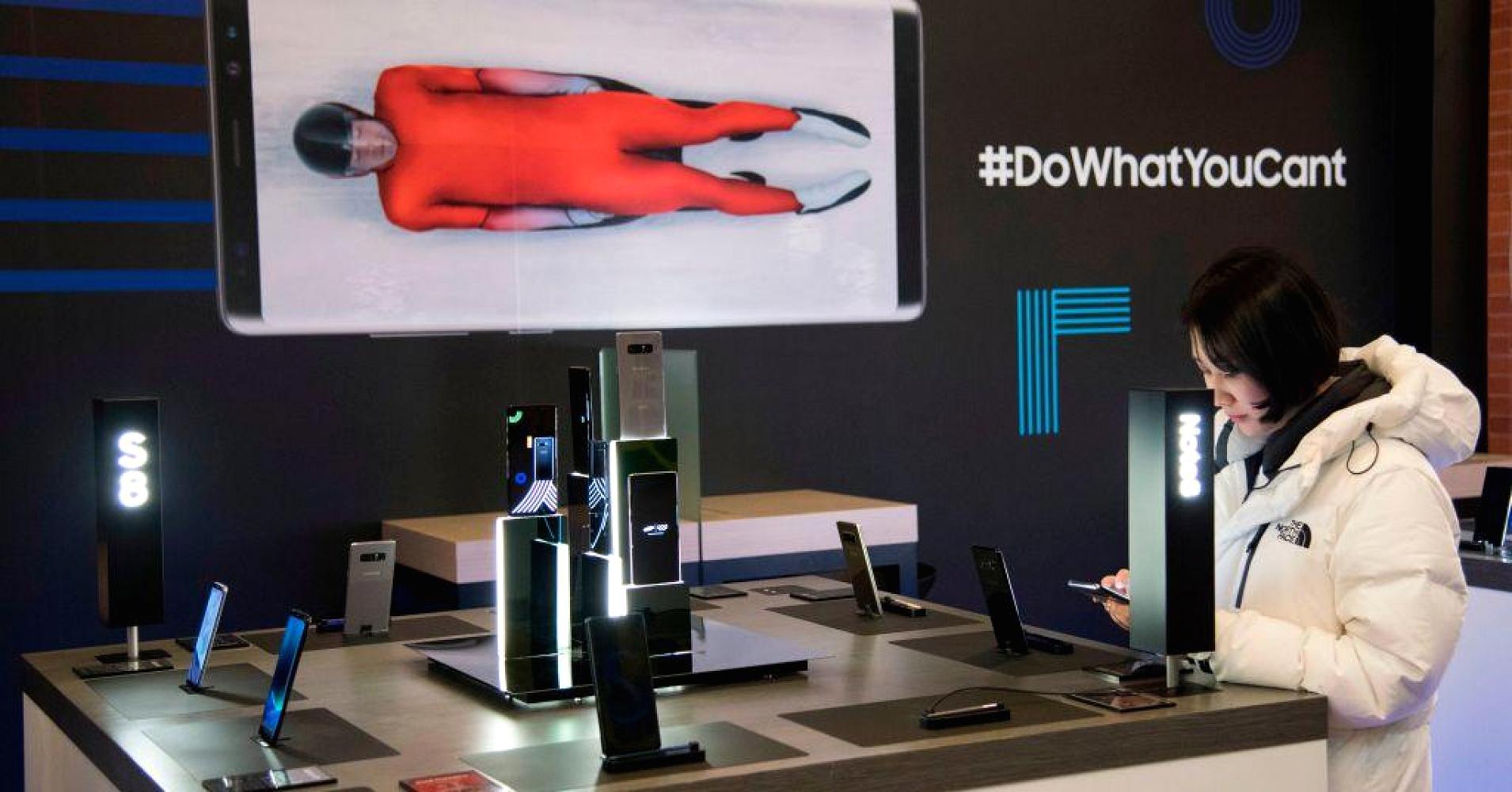
South Korea’s largest family-run conglomerates may have contributed to the more than 1 trillion won ($910 million) in domestic sponsorship raised for the Pyeongchang Winter Olympics, but the event is tricky terrain for them to navigate.
Chaebols, Korean conglomerates that are typically family-controlled, played a significant part during South Korea’s rapid industrialization, and have historically pitched in whenever mega-events — such as the 1998 Summer Olympics or the 2002 FIFA World Cup — were hosted by the country.
It was a similar story for the Pyeongchang Olympics. The bid to host this year’s games, first initiated by the regional Gangwon Province government, was successful after three attempts of bidding in part due to the involvement of the national government and chaebols.
Like other corporations that sponsor the Olympics, export-oriented chaebols participating as sponsors during the games stand to gain by increasing their visibility on a global platform. The games also provide a platform for companies to showcase new products.
Case in point: Samsung’s Olympic Showcase in the Gangneung Olympic Park showed off virtual reality technology that lets users experience snowboarding. The tech giant also gave out Galaxy Note 8 smartphones to athletes at the games.
Samsung, the sole South Korean corporation among the International Olympic Committee’s 13 worldwide partners, is just one of the domestic companies supporting the games. Other major Korean conglomerates, such as Lotte, SK Group and CJ Group, are not top-tier sponsors, but are still involved in various capacities as domestic sponsors, partners or suppliers.
The chaebols, which operate in varied business segments, also stood to benefit from construction activities taking place before and after the games, as well as tourism dollars generated during and even after the Olympics come to a close, experts said.
But the involvement of the companies in Pyeongchang wasn’t solely predicated on their bottom lines.
“It’s also part of a civic duty,” said Joo Yu-min, an assistant professor at the National University of Singapore’s Lee Kuan Yew School of Public Policy whose research focuses on mega-events in Asian cities.
“The responsibility to the government and to national development is much stronger for Korean chaebols,” she added, highlighting how the close ties between the government and local conglomerates are increasingly being questioned today.
Those concerns, surrounding an influence-peddling scandal that engulfed the country, ultimately resulted in the impeachment of Park Geun-hye, then South Korea’s president.
Apart from Park, the scandal also saw several prominent business leaders, including Samsung Group’s de-facto head, Jay Y. Lee, charged for their involvement in the scandal.
Lee’s father, Samsung Group chairman Lee Kun-hee, was pardoned in 2009 for tax evasion so that he could assist with South Korea’s bid to host the winter Olympics.
While Jay Y. Lee’s prison term was suspended earlier this month, the company remained plagued by scandal — police said the elder Lee was suspected of a separate instance of evading taxes, Reuters reported.
For chaebols then, it’s likely a case of being caught between a rock and a hard place: The companies have to deal with the fallout from the recent scandal, as well as follow through with the promises they had made in the lead up to the Olympics.
The political scandal last year meant that some chaebols were “not [in] a great mood” when it came to promoting the Olympics, said Sung-bae Roger Park, an associate professor at Hanyang University’s department of sports industry.
Even if they weren’t willing to participate in the games, chaebols were still “kind of forced” to participate in the event taking place on home soil, Park told CNBC.
An official on the Pyeongchang organizing committee told the Associated Press that corporations “showed some reluctance” when it came to providing sponsorship — although they ultimately played along.
Despite those claims, several chaebols contacted by CNBC indicated they didn’t encounter any such ambivalence when it came to sponsoring the games.
A spokeswoman at Lotte Corporation said that the company was “very pleased” to be a part of the sporting event.
“As the president of the Korea Ski Association, [Lotte] Chairman Shin Dong-bin was always interested in the Winter Olympics,” the spokeswoman said, adding that Shin’s recent prison sentence for bribery would not affect the company’s support for the Pyeongchang Olympics.
Samsung, meanwhile, did not address how the most recent charges against Lee Kun-hee affected its sponsorship effort, but said in a statement that it was “committed to sponsoring those around the world who are defying barriers.”
Even though North Korea’s participation in the games hogged the spotlight in the lead-up to the event, the suspension of Jay Y. Lee’s five-year prison term for bribery has raised questions more recently over chaebol reform in South Korea.
“The verdict reminds Koreans of the necessities for fundamental chaebol reform and thus may provide momentum for drive for the reform,” said Park Sangin, a professor focusing on corporate governance at Seoul National University.

